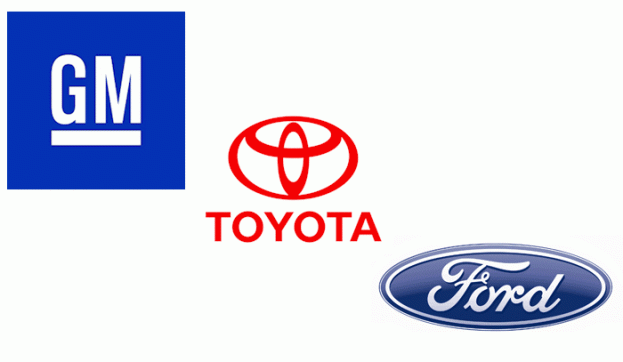Top Class Actions’s website and social media posts use affiliate links. If you make a purchase using such links, we may receive a commission, but it will not result in any additional charges to you. Please review our Affiliate Link Disclosure for more information.

The class action lawsuit originally filed in March alleged that Ford Motor Company, General Motors LLC, Toyota Motor Corporation, and Toyota Motor Sales U.S.A. Inc., have a defect in their cars’ electronic systems allowing the vehicles to be hacked remotely. The plaintiffs claim that “because the cars’ computer systems lack security, basic vehicle functions can be controlled by individuals outside the car, endangering the safety of vehicle occupants.”
The defective vehicle class action lawsuit alleges that Ford, Toyota and GM knew about the electronic defect since 2011, and have done nothing about it. Instead, the car companies “marketed their vehicles as safe.”
Because of the car manufacturers’ negligence, car hacking will happen, according to the plaintiffs. “Any expert will tell you that you can’t prevent it; it’s just a question of when,” they told the court.
However, U.S. District Judge William H. Orrick disagreed, calling the class action lawsuit’s allegations “too speculative.” Because no cars have actually been hacked, there is no “impending” harm, and “allegations of possible future injury are not sufficient,” Judge Orrick declared. In addition, the individual plaintiffs did not allege that they in particular were in danger of having their cars hijacked remotely.
The class action plaintiffs attempted to argue that they were economically harmed, because they would not have bought their vehicles if they had known of the electronic defect. In addition, they claimed that their cars are less valuable now that people know about the potential hacking defect.
Judge Orrick also dismissed those claims for being too speculative. The defendants argued that all cars made after 2008 have some form of the electronic component that plaintiffs claim to be defective, and Judge Orrick stated, “Because the alleged harm is unmanifested and widespread, how that would translate into economic injury is unclear.”
In addition, Judge Orrick found that the plaintiffs could not sue Ford in California, because none of the lead plaintiffs bought or leased a Ford vehicle in California, and Ford is not headquartered in California.
The plaintiffs also alleged that Ford, Toyota, and GM violated California privacy laws by automatically collecting data, such as car location, from their vehicles. Again, Judge Orrick stated that the plaintiffs did not allege any injury based on that data collection, and dismissed these claims.
The defective vehicle class action lawsuit sought to represent three classes of car owners, residents of California, Oregon or Washington, who purchased or leased a Ford, Toyota or GM vehicle. The plaintiffs wanted to stop Ford, Toyota and GM from making cars with the electronic defect, and to make the companies provide free repairs to fix the defect.
The plaintiffs have until Jan. 8, 2016, to file an amended car hacking class action lawsuit.
Plaintiffs Helene Cahen, Merrill Nisam, Kerry Tompulis, Richard Gibbs, and Lucy Langdon are represented by Matthew J. Zevin, Marc R. Stanley and Martin Woodward of Stanley Law Group.
The Car Hacking Class Action Lawsuit is Cahen, et al. v. Toyota Motor Corporation, et al., Case No. 3:15-cv-01104, in the U.S. District Court for the Northern District of California.
UPDATE: On Sept. 30, 2016, Toyota asked a federal appeals court to uphold a trial court’s dismissal of a vehicle hacking class action lawsuit.
ATTORNEY ADVERTISING
Top Class Actions is a Proud Member of the American Bar Association
LEGAL INFORMATION IS NOT LEGAL ADVICE
Top Class Actions Legal Statement
©2008 – 2024 Top Class Actions® LLC
Various Trademarks held by their respective owners
This website is not intended for viewing or usage by European Union citizens.















One thought on Ford, Toyota, GM Car Hacking Class Action Lawsuit Dismissed
UPDATE: On Sept. 30, 2016, Toyota asked a federal appeals court to uphold a trial court’s dismissal of a vehicle hacking class action lawsuit.